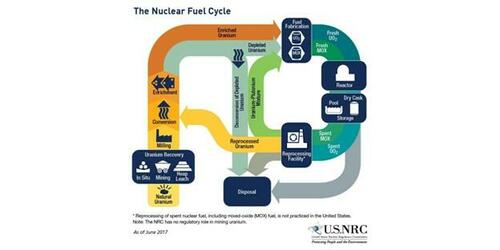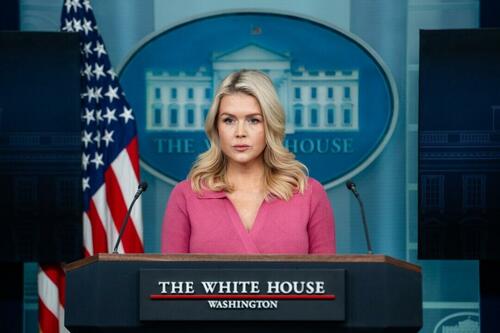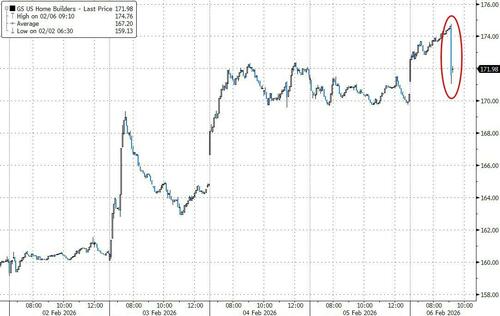Please enjoy the latest edition of Short Circuit, a weekly feature written by a bunch of people at the Institute for Justice.
Where there is a right, there is also a legal remedy when that right is invaded—unless federal agents violate the Constitution. Over at The Unpopulist, IJ’s Anya Bidwell and Marie Miller take stock of the Federal Tort Claims Act, state tort law, Bivens claims, and Section 1983 analogs, and chart a path toward reconstructing first principles.
New on the Short Circuit podcast: A primer on how to sue YouTube. Or work with it. It’s up to you.
- “No fraud is more odious than an attempt to subvert the administration of justice.” When an opinion starts that way, you know you’re in for a bad time. So it is in this First Circuit case, involving a Puerto Rico man who tried to get his ex-wife not to testify against him in a civil case, allegedly by promising to make concessions in their ongoing custody battle.
- The statute of limitations on a legal malpractice claim doesn’t start running until the plaintiffs have reason to know they’ve been harmed by the malpractice, says the First Circuit, and it’s no fair to say the plaintiffs should have read these highly technical patent documents in order to figure out they were getting malpracticed. That’s what the lawyers were for in the first place.
- Wherein the Second Circuit reminds district courts not to conflate the merits of a claim with standing to assert that claim, here in the context of substantive and procedural due process challenges to New York foster-care and adoption rules that prevent family members with certain prior convictions or child-mistreatment allegations from fostering their child relatives who have been removed from their parents.
- Philadelphia’s school district dramatically overhauls its admission system for its selective high schools in 2021 to favor zip codes with overwhelmingly black and Hispanic residents. Statements by school officials before and after are suggestive that racial balancing was the reason. Third Circuit: The disparate impact of the policy to significantly shift the schools’ demographics, combined with the statements, is enough that a factfinder could find unconstitutional racial discrimination—aligning with the Second Circuit against the First and Fourth Circuits in similar cases.
- Remember how the First Circuit held that attempting to dissuade a witness from testifying is really bad? Well the attempted murder of a witness is even worse! Third Circuit: And it is also a “crime of violence,” triggering some pretty severe sentencing enhancements.
- Lawyers repeatedly filing—and winning—habeas petitions in deportation proceedings are feeling a tad more chipper this week, at least in the Third Circuit, where the court declared: “A petition for a writ of habeas corpus has been a civil action since before our law was our law.” This means that prevailing lawyers can petition for attorneys’ fees under the Equal Access to Justice Act. The ruling deepens a circuit split. The split seems not to yet include the Eighth Circuit (where Minnesota is) but you can bet your bottom dollar the question will arise there soon enough.
- Just after re-assuming the presidency, the current president issues executive orders ending various federal DEI programs. A district court issues a PI on First and Fifth Amendment grounds. Fourth Circuit: Oh man, you brought facial challenges? Yeah, they’re tough. PI vacated. Concurrence: Going along with this for now, but changing from Calibri back to Times New Roman because it’s too “woke”? C’mon. [Ed note: The concurrence concedes TNR is okay in the abstract; indeed, the circuit itself “favors [Marco Rubio’s] font choice.” We cannot let that go without comment. Let us once again beseech all courts and institutions to please discard TNR and move on to something not specifically designed for mid-20th century newspapers.]
- Arlington, Tex. police cadet suffers a fatal cardiac arrest during a self-defense training exercise at the academy. His wife sues the city and all the officers present, alleging violations of the Fourth and Fourteenth Amendments. Fifth Circuit: Qualified immunity. The cadet was not a criminal detainee—he was a voluntary participant in a training exercise. Maybe there’s a state-law negligence claim here, but there’s no constitutional claim.
- In 2013, right-of-way granted by the feds that allowed oil company to operate a pipeline across the Fort Berthold Reservation in North Dakota expires, and yet the company continues to operate. A trespass in violation of the landowners’ federal common law, right? Eighth Circuit (2021): Sure would help if the Bureau of Indian Affairs chimed in. BIA: We will not. Eighth Circuit (2026): Thanks for “thumb[ing your] noses at our request” with these difficult issues. Left to our own devices, we conclude that there’s no common law cause of action for the landowners because they’re acting individually rather than as a tribe and their land came to them via federal statutory allotments rather than Indian title. Dissent: Individual Indian landowners can, indeed, enforce their property rights.
- “To be sure, switchblades are not identical in form or character to Bowie knives, Arkansas tooth picks, slungshots, blackjacks, or clubs.” No, this is not a line from a Mickey Spillane novel. Instead it is from the Ninth Circuit in upholding California’s various restrictions on switchblades from a facial Second Amendment challenge.
- Oklahoma trooper stops a rental car for going 4 mph over the speed limit, begins preparing a warning, but calls in a canine unit after the driver and passenger give allegedly inconsistent travel plans. Yikes! Dog alerts and officers find 100 pounds of meth. Tenth Circuit: Arguable inconsistencies do not alone amount to reasonable suspicion, so officers had no basis for extending the stop with a dog sniff. Denial of motion to suppress reversed and case remanded.
- After their children are assaulted and battered by caretakers at gov’t-run daycare on Houston County, Ga. Air Force base, parents file suit under the Federal Tort Claims Act. District court: But the FTCA only lets you sue for intentional torts like assault and battery if those torts were committed by a law-enforcement officer, and these daycare employees don’t fit the bill. Eleventh Circuit: Case undismissed. If the gov’t gets into the business of childcare, it also gets into the business of making sure the kids are safe.
New case! Candi Mentink and her husband Todd Collard sell custom caskets in Oklahoma, buying the caskets wholesale and then custom-wrapping them with religious symbols, patriotic patterns, school and sports logos, and much more, which they then sell to funeral homes and directly to the public. But state law forbids the sale of caskets to state residents without a funeral-director license, and the funeral board has cracked down on Candi and Todd, who’d operated for years with no problems unaware of the law. They don’t want to direct funerals or embalm anyone, and indeed there is zero public health and safety justification to require them to learn how. So this week, they filed a suit in state court under the Oklahoma Constitution, which protects the right to earn an honest living free of unreasonable regulations. Click here to learn more.
The post Short Circuit: An inexhaustive weekly compendium of rulings from the federal courts of appeal appeared first on Reason.com.
from Latest – Reason.com https://ift.tt/yrzLx7g
via IFTTT










